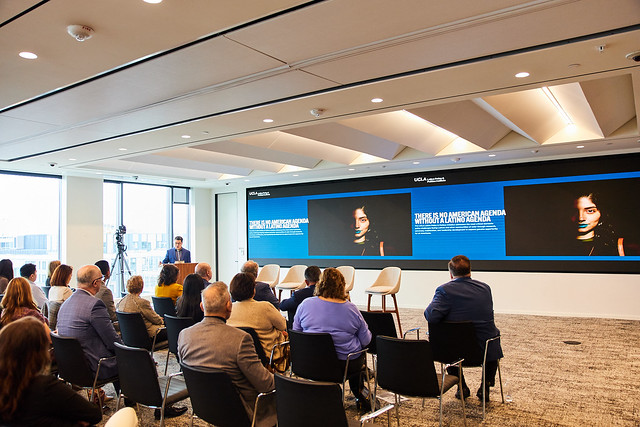UCLA Paper on Youth Electoral Engagement Wins UC-Wide Competition
Although today’s young people are civically engaged in many ways, they continue to vote at lower rates than older age groups. A white paper by UCLA Luskin Social Welfare Professor Laura Wray-Lake identifies the policy barriers keeping young citizens from the ballot box and offers several recommendations for building a more inclusive democracy in California. The paper won a competition among scholars from all University of California campuses, and Wray-Lake and her team of researchers will present the findings at a public lecture hosted by UC Center Sacramento on May 29. The competition is part of the UC system’s “Grow Our Own” initiative aimed at diversifying the academy by encouraging students to see their own potential. Wray-Lake and postdoctoral scholar Christopher Wegemer were commended for bringing three UCLA undergraduates onto the research team: public affairs major Leslie Ortiz, sociology and statistics major Ryo Sato, and philosophy and history major Amy Wong. Using multiple research methods, the team found that California has several laws that promote ease of access to registering and voting, yet more can be done to maximize participation by younger voters. Among the recommended policies is the designation of high schools as official voter registration agencies. California offers automatic voter registration (AVR) through the Department of Motor Vehicles, but young people today are much less likely to get their driver’s license. Since school enrollment requires identification and residency documents that also satisfy voter registration requirements, “establishing AVR in high schools would allow California to act on a commitment to bringing young voters to the ballot box,” the researchers write.
View a recording of the public lecture

